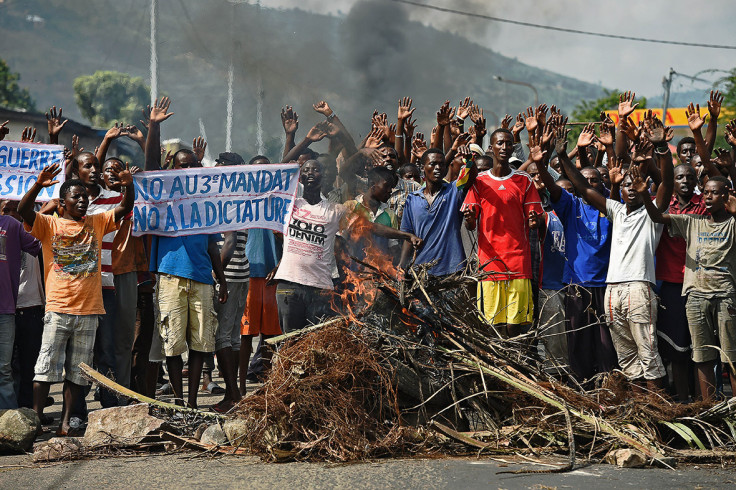Burundi: President Pierre Nkurunziza fires ministers as protest continues

Burundi's President Pierre Nkurunziza has sacked three cabinet ministers while protesters returned to the streets days after a failed coup attempt. The defence, external relations and trade ministers were dismissed in a cabinet reshuffle.
Burundi
Capital: Bujumbura.
Population: 10.6 million of whom 85% are Hutus, 14% Tutsis, and 1% Twas.
Official languages: Kirundi, French, English.
Colonisation era: Burundi and Rwanda were German colonies from the 19<sup>th century until the end of the Second World War. Then Belgium took control of the so-called "Rwanda-Urundi", modern day Rwanda and Burundi.
Burundi gained independence and established a constitutional monarchy in 1962. It became a republic in 1966.
Civil war: The first democratically elected Hutu president, Melchior Ndadaye, was assassinated by Tutsi extremists three months after taking office in 1993. Hutus started massacring Tutsis and in retaliation, the army, mainly composed of Tutsis, killed thousands of Hutus.
This sparked civil war, which claimed at least 300,000 lives.
The ministers were fired as Nkurunziza – who is facing widespread criticism after he announced he will seek a third term in the June election – is replacing government members with his allies, according to reports.
When contacted by IBTimes UK, Gervais Abayeho, spokesperson for the Burundian president, declined to comment on why the ministers were fired.
He said: "It was the government reshuffle today and it was a normal procedure to replace them. The constitution gives him [Nkurunziza] power to change people in the government whenever he thinks it is necessary."
The move came after the army declared a coup when Nkurunziza flew to Tanzania on 13 May. The leader was attending a meeting by the East African Community (EAC) on the unrest in Burundi, where violence erupted after Nkurunziza announced he is re-running for election.
Protesters accused him of violating the constitution and the Arusha Peace Agreement, which says the president can only stay in power for two terms.
Nkurunziza's supporters argue the president's first term should not be counted as he was chosen by the parliament and not by the people in an election as is specified in the agreement.
More than 20 people have been killed during protests that started at the end of April. Following the failure of the coup, protesters returned to the streets despite police warning them they will shoot those who participate in marches.
© Copyright IBTimes 2025. All rights reserved.






















